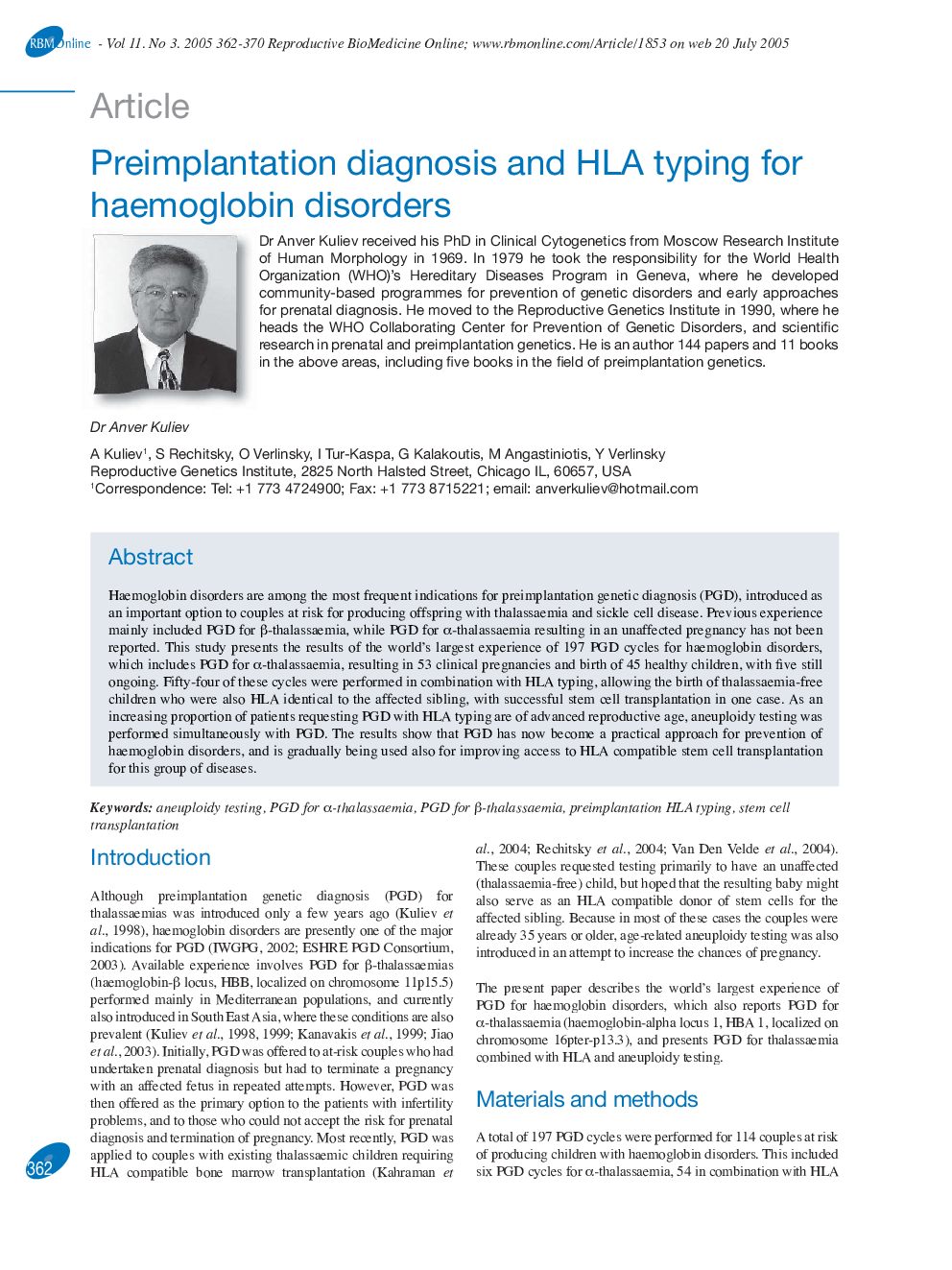| Article ID | Journal | Published Year | Pages | File Type |
|---|---|---|---|---|
| 9334694 | Reproductive BioMedicine Online | 2005 | 9 Pages |
Abstract
Haemoglobin disorders are among the most frequent indications for preimplantation genetic diagnosis (PGD), introduced as an important option to couples at risk for producing offspring with thalassaemia and sickle cell disease. Previous experience mainly included PGD for β-thalassaemia, while PGD for β-thalassaemia resulting in an unaffected pregnancy has not been reported. This study presents the results of the world's largest experience of 197 PGD cycles for haemoglobin disorders, which includes PGD for β-thalassaemia, resulting in 53 clinical pregnancies and birth of 45 healthy children, with five still ongoing. Fifty-four of these cycles were performed in combination with HLA typing, allowing the birth of thalassaemia-free children who were also HLA identical to the affected sibling, with successful stem cell transplantation in one case. As an increasing proportion of patients requesting PGD with HLA typing are of advanced reproductive age, aneuploidy testing was performed simultaneously with PGD. The results show that PGD has now become a practical approach for prevention of haemoglobin disorders, and is gradually being used also for improving access to HLA compatible stem cell transplantation for this group of diseases.
Related Topics
Health Sciences
Medicine and Dentistry
Obstetrics, Gynecology and Women's Health
Authors
A Kuliev, S Rechitsky, O Verlinsky, I Tur-Kaspa, G Kalakoutis, M Angastiniotis, Y Verlinsky,
